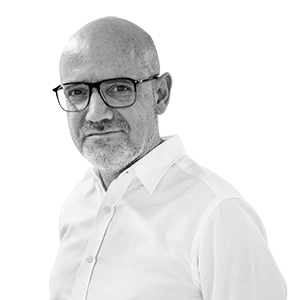Scandals over the purchase of masks besiege the PP
Almeida defends City Hall's action: "We may have made mistakes, but all we wanted was to protect those who had to go out on the streets"


BarcelonaThe purchase of masks and medical supplies in Madrid during the pandemic threatens to become the first major problem that the new leader of the PP, Alberto Núñez Feijóo, will have to face. The Madrid's Court of Instruction no. 47 has admitted the complaint filed yesterday by the Anti-Corruption Prosecutor's Office against two intermediaries who allegedly swindled the Madrid City Council. This comes after a separate investigation was opened to attest whether Madrid regional president Isabel Díaz Ayuso's brother used family ties to secure a contract. One thing unites the two cases: in both cases intermediaries received very juicy commissions at a particularly dramatic moment for Spain.
On Wednesday, the Anti-Corruption Prosecutor's Office filed a lawsuit against Luis Ramón Medina Abascal, son of the Duke of Feria and Naty Abascal, and Alberto Javier Luceño. They are accused of fraud and money laundering for three contracts worth $12m with the company Leno in order to purchase masks, rapid tests and gloves. According to the lawsuit, the prices were inflated due to the commissions that the defendants intended to charge. In fact, the commission reached 80% of the price in the case of the gloves, 71% in the case of the tests and 61% in the case of the masks. When the products arrived in Madrid, it turned out that they were of poorer quality and much more expensive than those that could be purchased on the normal market. The complaint also explains that after they had collected their commission (over $6m), the accused bought luxury cars (a Ferrari and a Lamborghini), a house, a yacht and luxury items such as a Rolex, in order to launder the money.
And how did these two intermediaries contact the City Hall? It turns out they knew one of the mayor's cousins, lawyer Carlos Martínez-Almeida, who gave them the email address of the person who centralised the purchases at that time. The Prosecutor's Office rules out that there has been a crime of influence peddling by the mere fact of passing on an email address; therefore, in principle, the City Council would be here a damaged party. The Prosecutor's Office already reported that it had detected that many businessmen had made large profits from the sale of sanitary material, but this is not a crime in itself. In the case of Luis Medina and Alberto Javier Luceño, however, it is considered that they deceived the City Council with both the prices and the quality of the products. The investigating judge announced today that he will summon the two defendants and other witnesses he may consider of interest to testify.
The mayor of Madrid, José Luis Martínez-Almeida, appeared today to defend the actions of the City Council: "We may have made mistakes, but all we wanted was to protect those who had to go out onto the streets". Almeida was outraged by the fact that his resignation is being called for despite the Prosecutor's Office having ruled out that he has any responsibility in the case. "I had no idea that my cousin had intervened in any way," explained the mayor, who added that Luis Medina sent two emails to the mailbox of the City Council that centralised purchases, and then the City Council contacted him to make the purchases. "Obviously, if it is proven that we have been swindled we will exercise all actions to recover every penny," he said.
Clash with the European Public Prosecutor's Office
On the other hand, the Prosecutor's Office continues to investigate the case of the Madrid president's brother to try to clarify whether he committed any offences by pocketing nearly €300,000 from a company that sold masks to the Madrid region. This investigation has provoked a clash with the European Public Prosecutor's Office, a recently created body that investigates possible cases of fraud with European funds. It considers that it is competent to investigate the Ayuso case would fall within its competences.
The fact is that the first investigations into possible cases of corruption linked to the supply of health material during the pandemic have their epicentre in Madrid, which, let us remember, was the European region with the highest overmortality in the first phase of the pandemic. The Minister of the Presidency, Félix Bolaños, made a statement to Ser radio which is strongly reminiscent of what Pablo Casado said about Ayuso's brother: "How can it be that while thousands of people were dying, someone was making a fortune out of the masks?" Bolaños has not ruled out that the PSOE will end up presenting a motion of censure in the Madrid City Council against Almeida. The operation would need the support of Ciudadanos, which could bet on making its leader in the state capital, Begoña Villacís, mayoress, a year before elections that could leave the party without any councillors.
